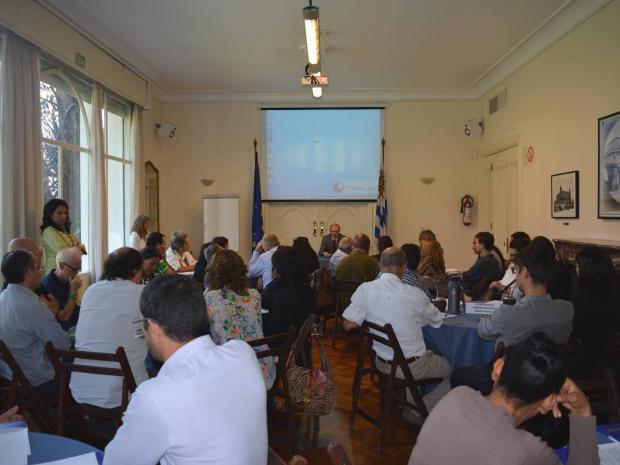Roadmaps in graduated countries – the case of Uruguay
Discussion details
Uruguay is one of the countries in Latin America that according to World Bank categorisation can be shared under the category ‘High Income Countries’. Due to the transition into this category, international and bi-lateral cooperation almost do not play a role in the country anymore. Nevertheless, the EU Delegation in Montevideo, although being small and having limited resources, is still playing an important role in the development and implementation of the Roadmap for EU engagement with Civil Society.

While in many countries the Roadmaps are often centred around the role of civil society in development and democratisation, in Uruguay the Roadmap is mainly focusing on enhancing the political dialogue of CSOs with the government. According to Susana El-Kum, expert of the Roadmap Support Facility who recently supported the EU Delegation in Montevideo with the drafting of the Roadmap, the recent transition of the country into the group of graduated countries implied a reduction in funds available for CSOs. The Uruguay Roadmap for EU engagement with Civil Society is therefore emphasising on increasing interaction between CSOs and the government in order to reinforce the role of CSOs in Uruguay.
As Uruguay is since the beginning of 2014 on the list of graduated countries, it entails that it is not eligible anymore for the EU financial instruments for development cooperation. The Roadmap in Uruguay is therefore fundamentally focusing on a process of political commitment rather than on funding. The process of drafting the Roadmap has allowed to re-launch dialogue with CSOs and to establish contacts with CSOs from a wide range of actors including social organisations, networks, private sector representatives, cooperatives, Academia, research centers and defenders of Human Rights.
At the same time, there is a strong demand from CSOs to create a space for dialogue with donors. This mechanism needs to be a continuous and constructive dialogue with civil society with regular dialogues among multi-stakeholders and based around sectors or specific themes like education, gender, human rights or the environment. This dialogue should furthermore include the academic world, the private sector and the public sector where possible.
“The good thing about CSOs in Uruguay” Susana El-Kum says, “is that they are very well organised and they know what they want. Therefore, interaction with them, also for the EU Delegation, is quite easy. As a result of this, we also looked into ways how they can be the co-leader for the implementation of the Roadmap.”
In Uruguay, the EU’s engagement with Civil Society has so far contributed to a large extent to improve the social cohesion and civil participation in the country. Cooperation with middle and high income countries of in Latin America can be a fertile ground to test a new type of cooperation which is focused on inclusion and social cohesion, human rights and respect for the environment. Regional programmes therefore should not forget the important role that civil society can play to encourage more inclusive societies. For example, programmes that promote relations between Europe and Latin America, should promote South-South and Triangular cooperation as well, in order to promote horizontal relationships between partners.
For more information and examples EU Roadmaps for engagement with Civil Society we invite you to have a look at the report “Taking stock on the Roadmap process in Upper Middle Income and Upper Income countries.”
Log in with your EU Login account to post or comment on the platform.